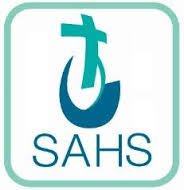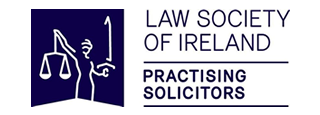Work place accidents are more common than you might think.
In October 2016, the Health and Safety Executive for Northern Ireland (HSENI) reported that the number of workplace deaths had fallen by 48% in 2015-16 to 12 victims, compared to 23 in the previous year. This is positive news, however the loss of 12 lives is still concerning. Farm fatalities contributed to 6 , compared to 9 in the previous year and construction at 2, compared to 5 previously. These statistics examined independently do not give the complete picture. There has been a 10% increase in the number of major injuries reported in the last year and the total number of reported injuries increasing to 2,777 cases.
Both employers and employees must be vigilant to potential danger particularly those working in environments which pose greater risks. Organisations such as HSENI are very active in introducing measures to address these issues through education and support programmes to assist employers to take appropriate steps to maximise safety in the workplace.
Does your employer do their utmost to ensure your safety, whilst at work? To answer this question, you need to be aware of the legal responsibilities placed on your employer.
What Responsibilities Do Employers Have To Protect Employees at Work?
Employers have a duty of care to protect their employees at work as far as is possible by taking the following steps to control or minimise risks to employees:
- Conduct Risk Assessments to identify what could harm employees at work and take actions to minimise the risk identified.
- Representation & Consultation – employers are responsible for the appointment of Health & Safety representatives, and participation in consultations with employees on issues that impact upon their health and safety.
- Training & Equipment – the employer is responsible for the provision of protective equipment and clothing, and the provision of health and safety training to staff to enable them to do their job as safely as possible.
- Facilities & Provisions – the employer is required to provide toilets, washing facilities, drinking water and adequate first aid facilities for employees.
- Employers Liability Insurance – employers are also legally required to hold Employers Liability Insurance of at least £5 million to enable them to meet the costs of damages and legal fees for employees who are injured from work place accidents or made ill at work, when the fault lies with the employer (exemptions apply).
Employee Responsibilities for Health & Safety at Work
As an employee, you also have a role to play in minimising your risk to work place accidents. Employees must take reasonable care of their own health and safety, and that of others in the workplace. They must also adhere to any advice and training provided by their employer, particularly in relation to use of any work equipment provided, and co-operate with their employers on health and safety matters. If an employee feels that they or any of their colleagues are being put at risk, they have a duty to tell someone, such as their supervisor, health and safety representative or employer.
Despite the above measures accidents can and do still happen. In such instances your employer has certain duties to fulfill.
Employer Duties in The Event of a Work Place Accident
- Record injuries – Employers should record the details in the company’s accident book as soon as is possible after the event in as much detail as possible. In the event of a claim this record will be referred to. Recording the accident details also helps employers and employees to work together to address the issues that led to the incident. This can assist preventative measures being put in place to minimise repeat occurrences.
- Report injuries – Employers must report injuries, diseases or any dangerous incidents at work. A legal duty is placed on employers, self-employed people and those in control of premises to report accidents and incidents at work as a result of RIDDOR – the Reporting of Injuries, Diseases and Dangerous Occurrences Regulations (Northern Ireland) 1997. It is necessary for employers to report the following:
- Work related deaths
- Major injuries, or over three day injuries i.e. any injury that which prevents the employee from working for over 3 days
- Work related diseases
- Dangerous occurrences / near-miss accidents
To make it easier for employers to report accidents a new rule came into being on 1st April 2013 that allows all employers to report an accident or incident directly to HSENI, regardless of who the relevant enforcing authority is for the business.
- Provide Sick Pay – if an employer provides a company sick pay scheme those provisions should be adhered to – if not, employers should still pay the injured party Statutory Sick Pay, provided the employee is eligible.
Personal Injury Claim-
If an employee has had a work place accident and feels that their employer has failed in their duty of care or not taken the appropriate steps to safeguard them they may be in a position to make a Personal Injury Claim against their employer. This must be made within 3 years of the date of the accident. You will need a solicitor to advise you correctly.
Contact us.
If you require advice on health and safety in the workplace, work place accidents or Personal Injury Claims, to arrange an appointment for a free no obligation consultation by email at law@lukecurran.co.uk or Tel 02830267134 or via our website www.lukecurran.co.uk








